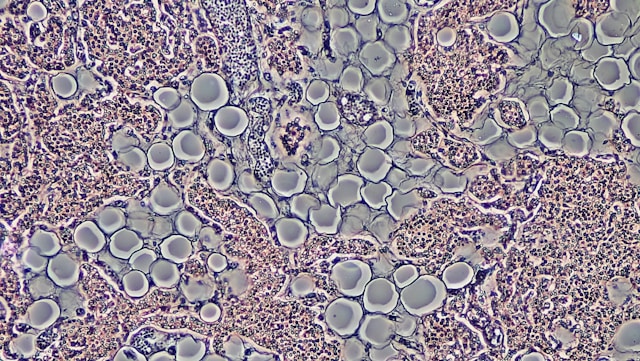Richard Weil, M.Ed., CDE
Founder and Director
Transformation Weight Control
www.transformationweightcontrol.com
[email protected]<br>
Every time I hear complaints of DIZZINESS or FATIGUE from participants in our program taking GLP-1s, it’s clear that it’s either the individual is consuming too few calories (like a car running out of gas), or they are taking too many diabetes medications that lower blood sugar which makes them hypoglycemic (low blood sugar). The text below gets into the details of these situations. If you prefer to read a brief 60-second summary, scroll down to the end of my blog and see how AI summarized it.
GLP-1s Work!
Remember that GLP-1s cause you to eat less food, which means less energy for your body to function well. When this happens, you may feel dizzy or fatigue. But this is not the fault of the medication. The medication is doing exactly what it is supposed to be doing. GLP-1s slow gastric emptying, keeping food in the stomach longer to promote fullness. However, delayed movement to the small intestine, where calories are absorbed, can cause fatigue, dizziness, and low blood sugar (hypoglycemia). ***See the illustration at the bottom of the blog.*** The solution to prevent these side effects is not to lower the medication dose or even stop the medication altogether. The solutions are next.
Solutions To Prevent Dizziness and Fatigue That We Teach Our Participants
- Count how many calories you are consuming in a day. I’ve seen patients who, when we count the calories consumed per day, are sometimes fewer than 900, or even 500; I’ve even seen daily calorie intake as low as 250 calories per day! That’s way too few calories and will definitely lead to dizziness and fatigue (just like the car running out of gas I mentioned above).
- As I said, the answer is not to lower your medication dose, or stop the medication, but to eat smaller meals or snacks more regularly throughout the day. Listen to your body and pay attention to fullness (see #3 below). Like virtually all of the TWC participants we see, you may have never experienced normal appetite regulation, so it’s all new for you to experience fullness or lack of hunger. But you will get better at feeling it as it happens more and more, and as you pay attention to it more. This is also a good argument for why struggling with your weight is NOT YOUR FAULT. You didn’t wake up one day and think how cool it would be to have abnormal appetite regulation, make it happen, and gain weight
- NEVER FORCE FEED. That is, do not eat past the point of fullness to consume more calories. And don’t drink lots of fluid after a meal. All of the food and fluid will remain in your stomach and it will lead to bloating, nausea, and possibly vomiting. Instead, as we tell all of our participants, eat smaller meals and snacks more regularly throughout the day so you keep your calorie intake higher. Changing your daily eating pattern like this will immediately reduce bloating, nausea, and possibly vomiting.
- Patients may also become hypoglycemic, which is low blood glucose (sugar), and that will cause dizziness and fatigue, disorientation, and sometimes what we call brain fog. In addition to calorie intake, it’s very to look at how many diabetes medications you are taking. I have seen patients who are taking three glucose-lowering medications. That’s too many, the doctor should be aware of it, and discontinue at least one of the medications. No one needs or should take more than two-glucose lowering agents. I’ve been a certified diabetes educator since 1986 and I know. Remember, a GLP-1 all on its own is going to lower your blood sugar if it’s high; if you add two more medicines that do the same thing, you will certainly get hypoglycemic and experience dizziness, fatigue, disorientation, and/or brain fog. And remember, you already have too few calories in your system from the GLP-1, which means your blood glucose may already be low, so lowering it even more with extra glucose lowering medications is only going to make matters worse.
Take-Aways:
1) GLP-1s do not directly make anyone dizzy. There is no mechanism in your body for that.
2) In fact, GLP is a naturally occurring hormone made by your body that affects organs all over your body, including the brain (some is even produced in the brain).
3) If GLP-1s made people dizzy, then everyone would be complaining of dizziness and all the other GLP-1 side effects. But that’s not what happens.
4) These medications are very effective and they are doing exactly what they are designed to do.
5) Dizziness, fatigue, disorientation, and brain fog are due to too few calories consumed and/or hypoglycemia from too many glucose-lowering medications.
Conclusion
GLP-1 medications 1) are effective and safe if managed and used properly, including how to eat to fuel your body properly, 2) perform exactly as they are supposed to, and 3) are life-altering. Education about how to eat to avoid side effects and otherwise manage all the intricacies of taking these medications is critical. If you are in the dark about taking the medications, have lots of questions, or many side effects, which may be why you’re reading this blog, then you might consider joining our weekly online Weight Loss Medication Support Group.
A Quick Note About Our Weight Loss Medication Support Group
In the April 8, 2025, issue of Annals of Internal Medicine, the authors report that there were almost 25,000 visits to the emergency room secondary to side effects of GLP-1s in 2022/23. I am proud to report that in the 18 months that we have been running our weight loss medication support group, NOT ONE PARTICIPANT had to visit the emergency room secondary to GLP-1 side effects because we educate properly and provide the highest standard of care available. The information in this blog is just a miniscule part of all the information we provide in our support group. To read more about our Weight Loss Medication Support Group click HERE
AI Summary: Dizziness on GLP-1 meds? Two likely causes: 1) Too few calories can cause dizziness and/or fatigue (like a car running out of gas. 2) Multiple diabetes meds lowering blood sugar too much (hypoglycemia) can cause fatigue, disorientation, and fatigue.
Solutions:
1. Dizziness or fatigue from insufficient calorie intake: Eat smaller, more frequent meals/snacks throughout the day to maintain adequate calories. Never FORCE-FEED past fullness. Overeating may cause nausea or vomiting due to slowed digestion.
2. Hypoglycemia (disorientation or brain fog): Check with your doctor—limit to two glucose-lowering meds. GLP-1s don’t directly cause dizziness or brain fog; they are effective when used correctly.
Key Advice: Learn to listen to your body’s signals to manage GLP-1s effectively!
© 2025 Richard Weil, M.Ed., CDE, All Rights Reserved











